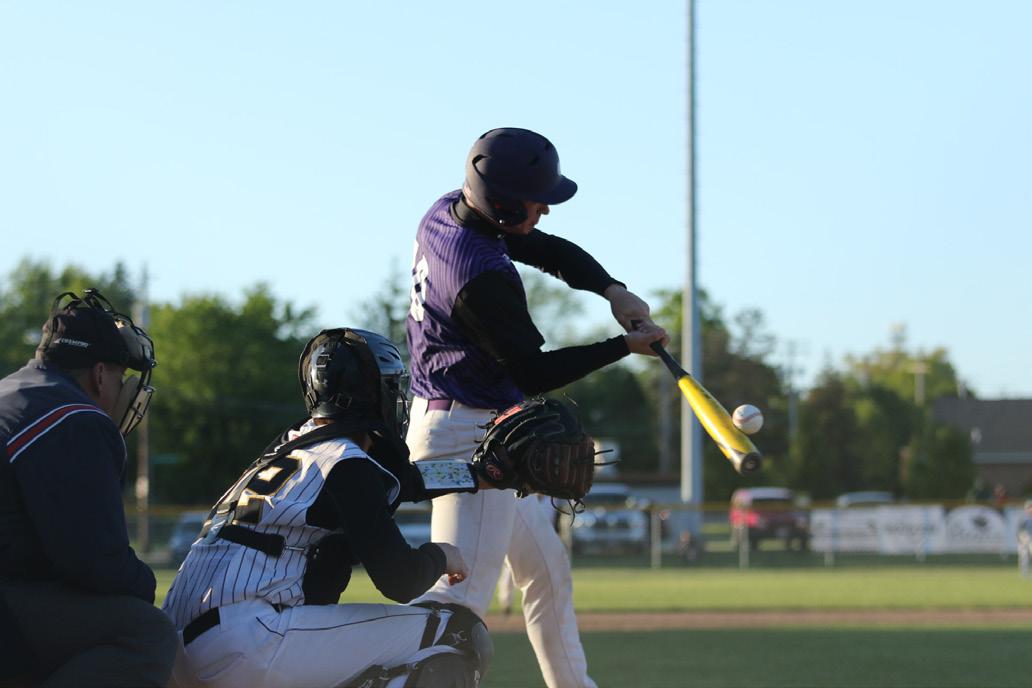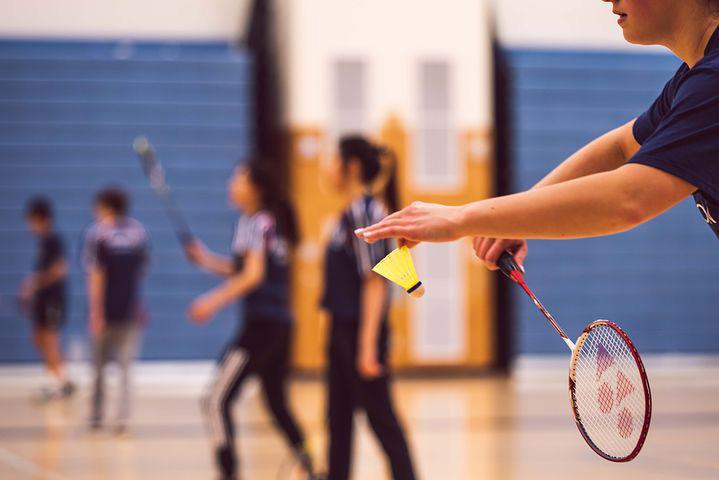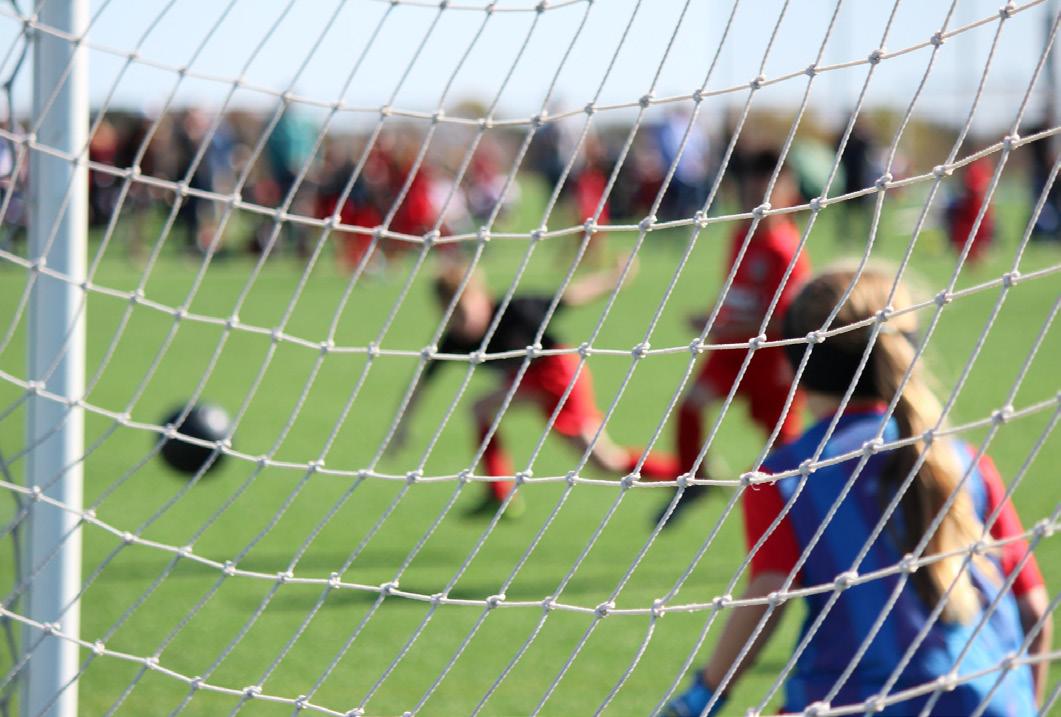
6 minute read
Sports in French, American and British schools
The Role of Sports in French, American and British High Schools
- William M. & Ulysse R.
Advertisement
Whether we like it or not, sports have always been more or less a part of our education. However, physical education holds different levels of importance in different countries. Whilst sports take an essential role in American and UK schools, the French educational system does not seem to be as concerned. Here is why they could be wrong.
In 2018, in the United States, there were 929,000 high school basketball players, 1,006,000 American Football players and 438,000 Baseball players. This isn't even comparable to France where school sports hardly exist. As you can see from the statistics above, America obviously did a better job in including sports into its educational system.
Why is this the case? Is it the over-saturation of homework or just the culture of sports in the US compared to France? The actual time dedicated to PE per Week is the same in France as in the US so it can’t be that France does not include enough sports in their curriculum.
One possible reason for the growth of high school sports in America is that kids and their families see the opportunities that are available to them. For example, every year, 160 000 students are given the opportunity to play sports in college for free including a full college education. The quality of the education can be debated, however ultimately, they have the option to get a diploma that can help them later in life if sports don’t work out. Knowing this can be the deciding factor for parents to enroll their children at a young age into school sports. Another reason that can be attributed to the success of high school sports in America is the general sports culture that is present in the country.
Sports are extremely popular in the US and each city is often very attached to their local team which is not necessarily the case in France. Events like the Super Bowl and NBA finals are national events that everyone tunes into. This sports culture is also often carried down through generations. The most common reason you will start to play a sport is not necessarily because you want to but because your parents do. If a dad played baseball because his dad did then he is most likely going to push his child to start playing too and willingly finance the journey, whereas a French parent might not see the point of doing so. American high schools also spend a large amount of money on sports as it’s a great way to advertise the school and can often influence kids to go there.
On the other hand, it is obvious that the French education system focuses little on sports, which appear to play a minor part in school. Many of us require some form of regular physical exercise to maintain physical and mental health. However, our needs are only met with a single EPS lesson every week and the rare opportunity of competitions on the weekends. Usually, we only do 2 hours of sports in school every week even though teenagers are recommended to exercise 1-2 hours a day. In terms of school teams, France doesn’t have anything that resembles the sports in America. The only teams available in France are Basketball and Soccer, which often train only once a week and rarely play games. If you are looking for a similar experience “sport étude” is available which only permits half a day of academic work so that young people can use their afternoons for practising their chosen sporting activity.
This can also entail living away from your family and can be quite costly depending on the situation. In addition, we often find ourselves submerged by work, resulting in a lack of time for extracurricular activities outside of school. To achieve a better balance between academics and sports, the curriculum should slightly decrease our workload to enable more PE in and out of school.
Our EPS sessions involve different physical activities such as badminton, climbing and dance. It works on a rota, meaning that every six weeks, students change sport. It is true that this offers a good taster for teenagers by trying out many sports although it also means that they cannot focus on one specifically. If they want to invest more time in a particular activity, they are forced to do so outside of school. Therefore, the problem over sports in France runs deeper than just high schools spending more time and money on sports.
Another country where sports in schools have a more important role then in France is the UK. However, it is done differently than in the US. For example, Latymer Upper School — a private school in central London — offers 2 hours of sport every week (referred to as game sessions) in addition to training sessions and weekend matches and this doesn’t include regular PE lessons which take place once weekly. The sports that are offered during ‘games’ are compulsory and usually include football, rugby and athletics for boys and netball, hockey and rounders for girls. This does unfortunately mean that there is less opportunity to experiment with different sports and that there is clear segregation in gender when it comes to sports in British secondary schools. Sports are however rarely graded in these schools, putting less pressure on students and therefore helping them to enjoy it more. This is a clear contrast to the way grading is done in France as students are graded after an ‘evaluation day’ with a harsh mark out of 20. Therefore, it is clear that sports are a significant part of British education as they are less academically centred like in France. More people are encouraged to participate in sports, which can become a major part of education, especially if students are enthusiastic.
There is no clear evidence of the impact of additional sports for UK A Level results compared to other countries due to varying educational systems. However, it is clear that sports have a positive impact on grades in general. Routine participation in sport and physical activity has a positive correlation with higher levels of attentiveness in classrooms which means that students will be able to recall content more easily. In addition, team sports can help students with their social skills as they are given new opportunities to interact and engage with one another. Sports also have benefits on our health, including mental and physical aspects. Sports releases endorphins which trigger a positive feeling in the brain. When we do sport, we are more likely to be enthusiastic and to engage even in the most tedious lessons. So why shouldn't we have the opportunity to do more sports if it will boost our academic results ?
In conclusion, it is clear that currently, physical education does not occupy the place that it deserves in French schools. Perhaps we should take into account the benefits of sports on the health of their students and also follow the example of other methods used in anglosaxon countries.









